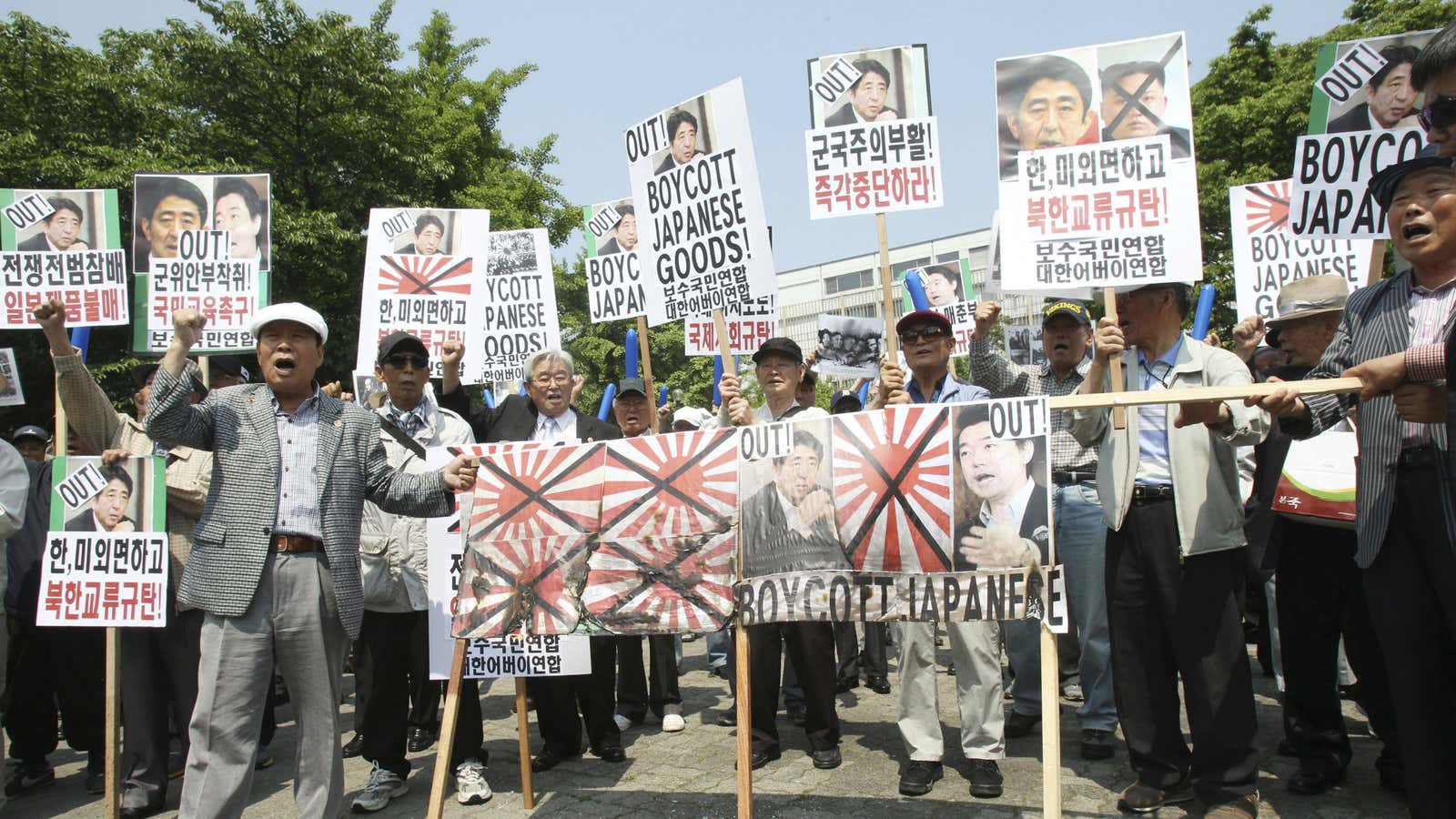Japan’s mood about the direction of the country is the highest it’s been since at least 2002, according to the Pew Research Center. Seven out of ten adults see Prime Minister Shinzo Abe favorably. But in the rest of Asia, perceptions of Japan have taken a sharp swing in the opposite direction: 90% of Chinese and 77% of South Koreans see Japan in a negative light.
Abe came to power in December last year on two principles: an economic bazooka and a revival of populist nationalism. The former, now known as “Abenomics,” has been largely welcomed by the business world, but the latter has threatened to distract from Abe’s attempts to revive Japan’s economy. An angry nationalist minority is growing in numbers and volume. Most notably, the face-off with China over the disputed Senkaku/Diaoyu island chain caused a huge upsurge of anti-Japanese sentiment, with disastrous results for Japanese automakers and other exporters.
Pew figures show that almost two thirds of Japanese think Tokyo has either apologized sufficiently for its conduct during World War II or does not need to, whereas 98% of South Koreans and 78% of Chinese disagree. Senior political visits to war shrines and promises to change Japan’s constitution to allow it to take aggressive military action have inflamed Japan’s northern neighbors. It didn’t help that Toru Hashimoto, the mayor of Osaka, said in May that forcing women to become prostitutes during the Second World War was “necessary.”
Abe is the grandson of Nobusuke Kishi, who was imprisoned as a suspected Class A war criminal after the war, and who later served as a conservative prime minister. But not everyone is convinced that Abe’s nationalism is central to his worldview, and for the moment he certainly doesn’t need to worry about his approval rating. If Abenomics is a success, he may be willing to tone it down even further—to the benefit of the region, and to the perception of Japan abroad.
